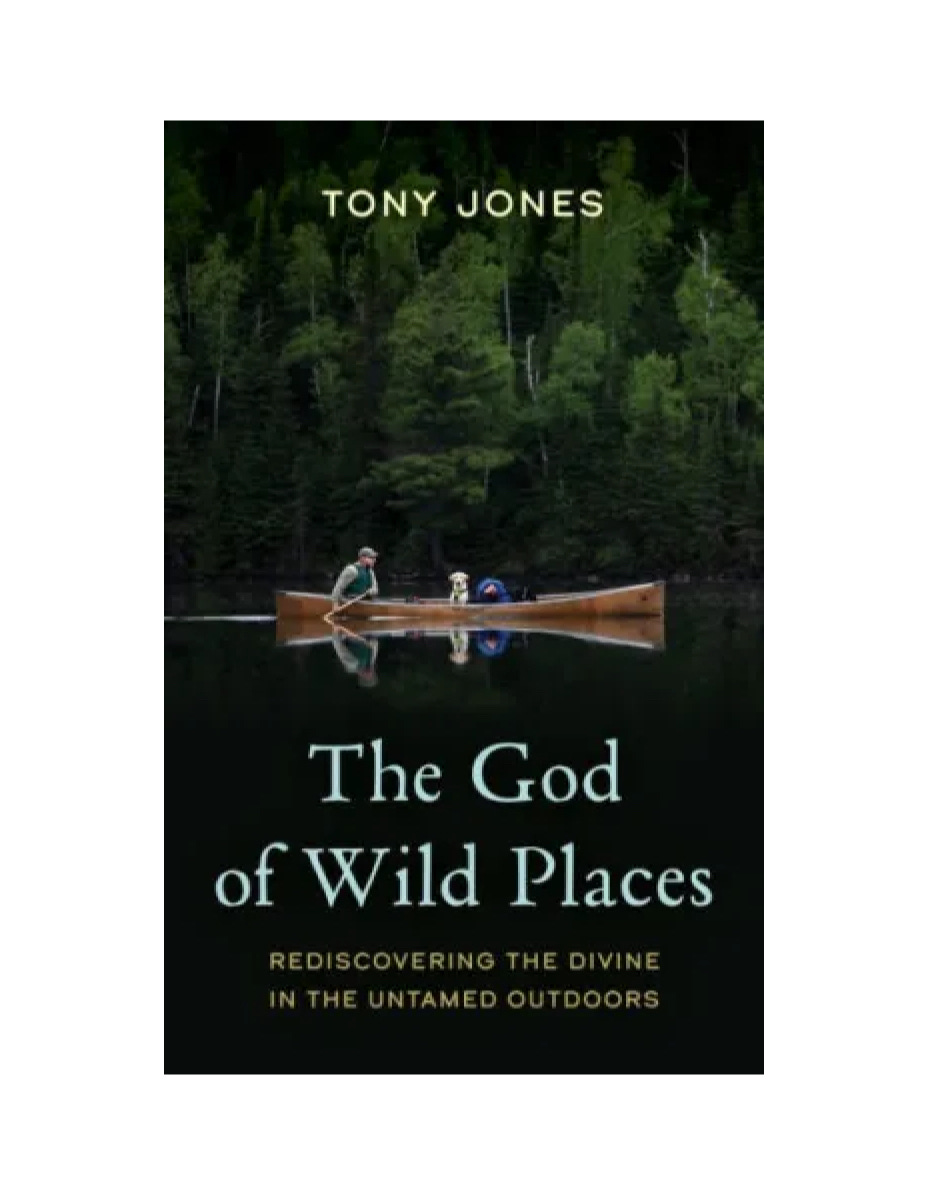12 Questions for a Writer: Tony Jones
Tony Jones is a hunter, angler, theologian, and canoe guide. His new book, The God of Wild Places, traces his journey into the outdoors to find meaning and transcendence. Check it out.
1. Tony, please tell us who you are, what have you written, and why?
Among the ways that I self-identify, Minnesotan is primary. I’m also a father and a husband, a son and brother and friend and dog owner. I used to identify myself primarily as a Christian, and a pastor. But now I’m a former pastor, and I’m less Christian than I used to be (though somehow still Christian). The book I’ve written, The God of Wild Places, traces my journey out of the church and into the woods, during which time the sporting life has supplanted my religious life.
2. What is it that draws you to writing?
I’ve loved writing since I was young, and I had the benefit of several teachers and professors along the way who have complimented my writing — each time that’s happened, it’s put some wind in my sails. I have vivid memories of getting my first essay published (on The Matrix and the Columbine school shooting) and signing my first book contract. And I must admit, each article and book since has thrilled me in the same way.
3. Tell us about the process you undertook to write this book?
The book had a long journey. I once wrote a book in a weekend — not my best work — whereas this book was birthed in a conversation with my literary agent a dozen years ago. Since then, a lot has changed, of course: I published another book and wrote a couple novels; my kids grew up and left the house; we survived a pandemic. I’ve worked harder on this book than any book I’ve written. It’s gone through multiple editors and iterations, and cut more words than I ever had before.
4. What did you learn in the process and what surprised you?
Before this book, I’ve always hated revising my manuscripts. I would go into the process thinking, I’ve already written it as well as I can, so how can I be expected to make it better?!? However, the bloodletting on this book made it better and better with each pass, even as the book got shorter and shorter. So I think I’m finally old enough (broken enough?) to admit that the process of revision is as important as the process of writing.
5. Would you do it again?
Yes, absolutely. I can see why authors who write successful memoirs get hooked on the genre and write sequels. To write honestly about one’s own life, and have it well received, is enormously rewarding.
6. What do you want people to take away from this book?
I think there are lots of people like me who find their connection with transcendence in the outdoors. I hope that readers will find in my words some affirmation of their own journeys into the wilderness, and maybe also some theological and philosophical resources for that journey.
7. What advice do you have for aspiring authors?
Be an editor-friendly writer. That is, take all editing advice humbly, not defensively. Whether it’s voice or grammar or pacing, gifted editors are able to see elements in our writing that we can’t see ourselves. Your editor(s) will make you better.
8. What is your favorite book and why?
My favorite book of all time is The Name of the Rose, an impossibly hard, funny, postmodern murder mystery set in a medieval monastery and full of Latin phrases. I think that Umberto Eco was a genius.
9. This book offers some hard insights about big issues, life, death, religion, family, marriage. Was that difficult to put out there for the world to read?
A couple things. For one, it was a significant literary challenge to tell enough about my grievous first marriage to give readers a sense for how bad it was without falling prey to the airing of dirty laundry. Earlier versions had a lot more dirty laundry than the final manuscript. And a couple bits I wrote about my father, including the chapter on his death, were difficult to write — and, based on what I’m hearing from early readers, equally difficult to read.
10. You have an Ivy League resume, what is it about the woods that pulls you?
Well, those two aren’t mutually exclusive! The outdoors has always been important to me, but I think that the solace I found there during a brutal divorce and custody fight cemented the importance of wilderness in my life. Frankly, the life-and-death struggle of the flora and fauna with which we share this planet puts my own challenges in perspective. So I keep going into the woods so that I can keep re-gaining that perspective.
11. What pulled you to the church, what pushed you away, and what is your relationship with religion now?
My pull into the church started at a young age — I first articulated a call to ministry in seventh grade. And for many, many years, my gifts were affirmed in the church. Until they weren’t. Because of my position as a leader in the American church, when my life went sideways, a lot of people didn’t know what to do with me. I became radioactive. I kept trying for a long time, maybe I even forced it, rather than paying attention to the clear signs that the church didn’t want me anymore. So I’ve moved on.
12. What have I not asked that I should have?
You should have asked, Why do dogs only live about 10 years? I would have said, I don’t know, but if I get a chance to meet God someday, that’ll be my first question.



